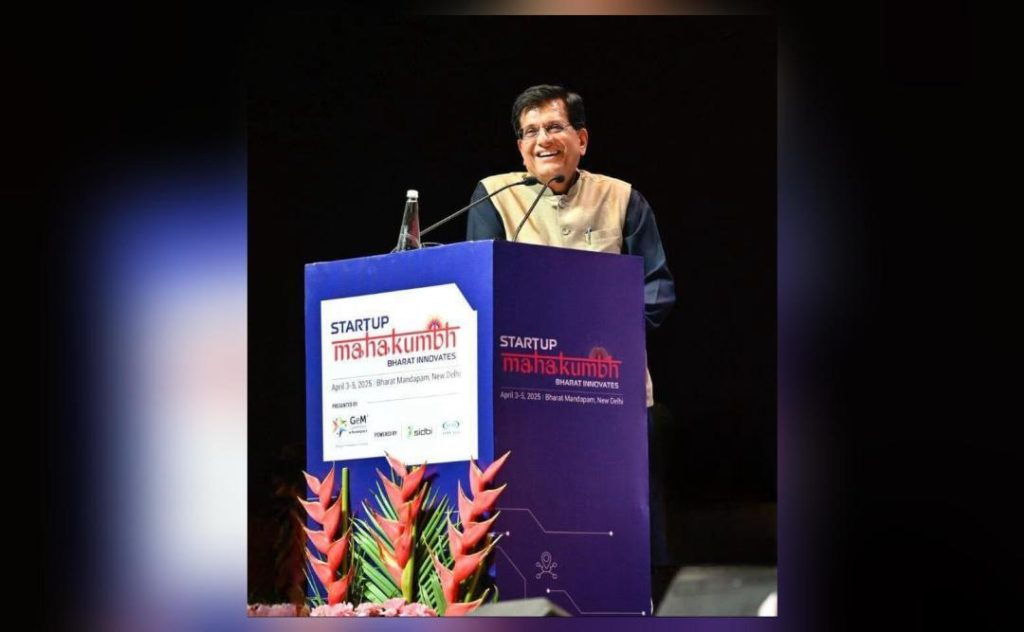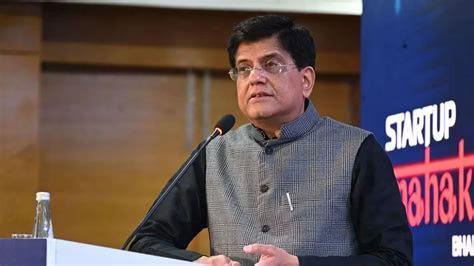
Giving Fancy Packaging to Ice-Creams & Cookies is Not Start-up: Piyush Goyal
In a recent statement at Startup Mahakumbh 2025, Union Minister of Commerce and Industry Piyush Goyal emphasized that giving fancy packaging to ice-creams and cookies does not make it a start-up. He highlighted that it is entrepreneurship and a business model, rather than a start-up, when a company focuses on mere aesthetics. This statement has raised important questions about what constitutes a start-up and what steps need to be taken to foster innovation and entrepreneurship in India.
Goyal’s comments came as a wake-up call to the Indian startup ecosystem, which has been witnessing a surge in the number of new businesses. However, the Minister’s words also served as a reminder that true innovation and entrepreneurship require more than just a fancy packaging or a unique product. Start-ups need to focus on solving real-world problems, creating new markets, and disrupting existing ones.
The Minister’s statement was also a response to the lack of innovation in India’s deep-tech space. According to Goyal, only 1,000 start-ups in India’s deep-tech space is a disturbing situation. This is in contrast to other nations, where start-ups are focused on cutting-edge technologies such as AI and 3D printing.
Goyal’s concerns are well-founded. India’s deep-tech space has been lacking in innovation and entrepreneurship, with many start-ups focusing on traditional areas such as e-commerce and food delivery. While these industries have their own challenges and opportunities, they are not necessarily the most exciting or innovative areas of focus.
The lack of innovation in India’s deep-tech space is also reflected in the country’s patent filings. According to data from the World Intellectual Property Organization (WIPO), India’s patent filings have been declining in recent years. This is a cause for concern, as patents are an important indicator of innovation and entrepreneurship.
So, what can be done to address the lack of innovation and entrepreneurship in India’s deep-tech space? Firstly, the government needs to provide more support to start-ups working in these areas. This can include providing funding, mentorship, and access to resources and networks.
Secondly, the government needs to encourage more young people to pursue careers in science, technology, engineering, and mathematics (STEM). This can be done by providing more scholarships and grants to students pursuing higher education in these areas.
Thirdly, the government needs to create more opportunities for partnerships and collaborations between start-ups, academia, and industry. This can include providing funding for research and development projects, as well as creating incubators and accelerators to support start-ups.
Finally, the government needs to create a more favorable business environment for start-ups. This can include reducing bureaucracy and regulatory hurdles, as well as providing more access to funding and resources.
In conclusion, Piyush Goyal’s statement at Startup Mahakumbh 2025 highlights the need for more innovation and entrepreneurship in India’s deep-tech space. While giving fancy packaging to ice-creams and cookies may be a successful business model, it is not a start-up. True innovation and entrepreneurship require more than just aesthetics, and the government needs to provide more support to start-ups working in areas such as AI, 3D printing, and other cutting-edge technologies.
News Source:



